/
Dogodki
/
Konference
The Role of School in Raising of the “New Man”: The Case of Lithuanian SSR
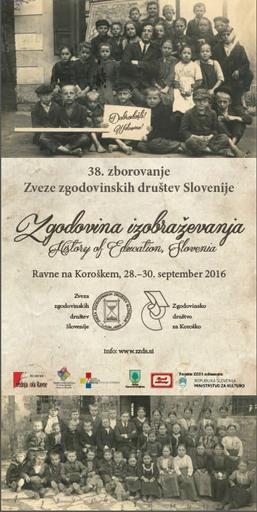
Avtor(ji):Irena Stonkuviene
Soavtor(ji):Josué Llull Peñalba (mod.)
Leto:2016
Založnik(i):Zveza zgodovinskih društev Slovenije, Ljubljana, Inštitut za novejšo zgodovino, Ljubljana
Vir(i):Usmeritve šolstva
Jezik(i):angleščina
Vrst(e) gradiva:video
Ključne besede:Soviet pedagogy, school, "New Man", upbringing, ideology, sovjetska pedagogika, šola, "novi človek", vzgoja, ideologija
Avtorske pravice: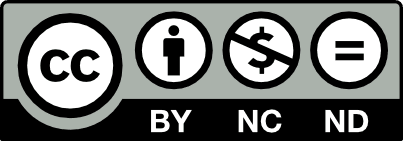

To delo avtorja Irena Stonkuviene je ponujeno pod Creative Commons Priznanje avtorstva-Nekomercialno-Brez predelav 4.0 Mednarodna
Datoteke (5)
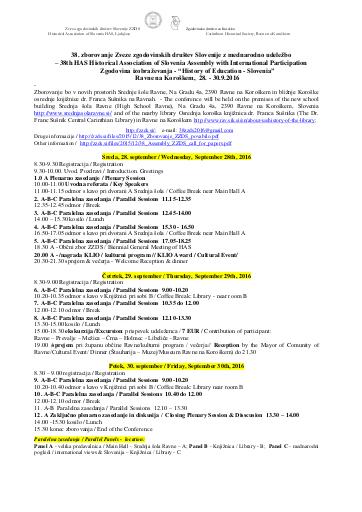
Ime:program-38-zborovanja-ZZDS.pdf
Velikost:313.04KB
Format:application/pdf
Stalna povezava:https://hdl.handle.net/11686/file22602
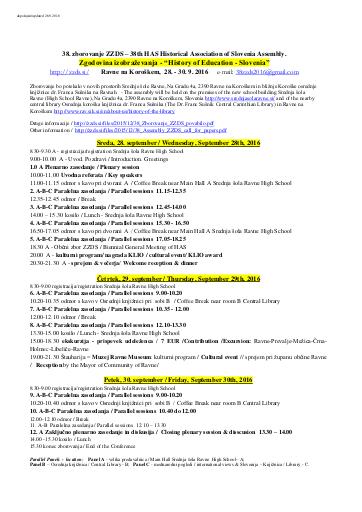
Ime:program-38-zborovanja-ZZDS-SLO-ANG.pdf
Velikost:303.57KB
Format:application/pdf
Stalna povezava:https://hdl.handle.net/11686/file22603
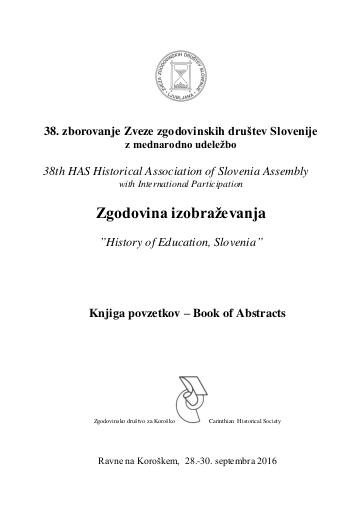
Ime:Knjiga-povzetkov–book-of-abstracts.pdf
Velikost:895.33KB
Format:application/pdf
Stalna povezava:https://hdl.handle.net/11686/file22604
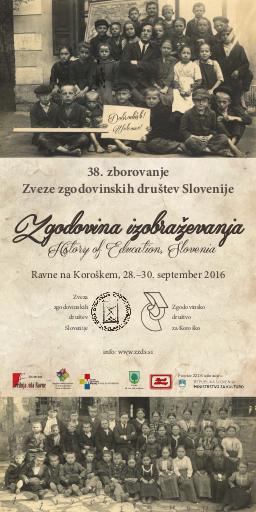
Ime:Plakat-38-zborovanja-ZZDS.pdf
Velikost:1.36MB
Format:application/pdf
Stalna povezava:https://hdl.handle.net/11686/file22605
Opis
According to M. Geller (1994), the Soviet school, which had a potential to become most revolutionary, in the long course of time became the most reactionary and conservative school in the world. Undoubtedly, referring to the pedagogical system, which existed almost the whole 20th century, we cannot ignore various changes that occurred in it. However, if we consider the main goal of the Soviet school, it remained almost unchanged. The names of the heads of the country and the numbers of party congresses would change but the requirements to school would always remain the same: to shape and raise the New Man (Person), who is committed to the ideals of the Communist Party, always determined to fight for the ideas of the Communism and to be an active builder of Soviet society (Trimakienė, 2007). On the basis of historical documents (educational documents, works of soviet pedagogy, pedagogical press, etc.), scholarly literature and the materials of the qualitative interviews with teachers, who worked in the Soviet school and the informants, who learnt in that school, the presentation will make attempts to discuss how these requirements were implemented in the schools of one of the republics of the Soviet Union, that is, in Lithuanian SSR, in the period of 1944-1990.
Metapodatki (12)
- identifikatorhttps://hdl.handle.net/11686/37438
- naslov
- The Role of School in Raising of the “New Man”: The Case of Lithuanian SSR
- ustvarjalec
- Irena Stonkuviene
- soavtor
- Josué Llull Peñalba (mod.)
- predmet
- Soviet pedagogy
- school
- "New Man"
- upbringing
- ideology
- sovjetska pedagogika
- šola
- "novi človek"
- vzgoja
- ideologija
- opis
- According to M. Geller (1994), the Soviet school, which had a potential to become most revolutionary, in the long course of time became the most reactionary and conservative school in the world. Undoubtedly, referring to the pedagogical system, which existed almost the whole 20th century, we cannot ignore various changes that occurred in it. However, if we consider the main goal of the Soviet school, it remained almost unchanged. The names of the heads of the country and the numbers of party congresses would change but the requirements to school would always remain the same: to shape and raise the New Man (Person), who is committed to the ideals of the Communist Party, always determined to fight for the ideas of the Communism and to be an active builder of Soviet society (Trimakienė, 2007). On the basis of historical documents (educational documents, works of soviet pedagogy, pedagogical press, etc.), scholarly literature and the materials of the qualitative interviews with teachers, who worked in the Soviet school and the informants, who learnt in that school, the presentation will make attempts to discuss how these requirements were implemented in the schools of one of the republics of the Soviet Union, that is, in Lithuanian SSR, in the period of 1944-1990.
- založnik
- Zveza zgodovinskih društev Slovenije
- Inštitut za novejšo zgodovino
- datum
- 2016
- 29. 09. 2016
- tip
- video
- jezik
- Angleščina
- jeDelOd
- pravice
- licenca: ccByNcNd
